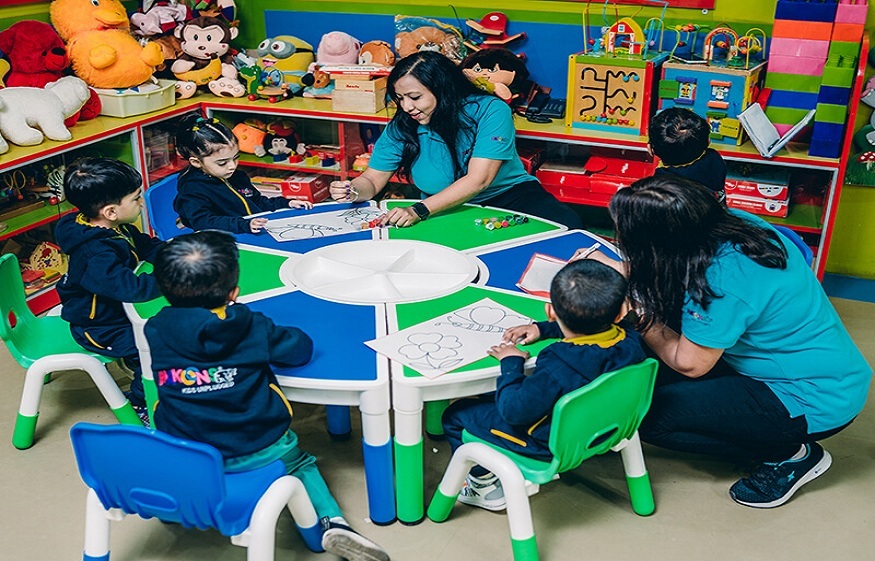If we must be demanding regarding the material organization of nursery schools, we will be more demanding when judging the spirit which animates them. Classes that resemble either daycare centers or preparatory classes for elementary school do not deserve to be recognized as nursery schools. There is a constant danger of giving in to pressure from certain more or less enlightened parents […]. School directors, headmistresses and kindergarten teachers will have to redouble their efforts to inform parents of the true objectives of kindergarten and to interest them in pursuing these same objectives at home.
Kindergarten, as we have already noted, wants to make the child entrusted to it a well-developed, fulfilled, balanced, happy child; this function requires a lot of psychology, know-how and kindness. This is how kindergarten best prepares children for entry into elementary school. The ministry and school boards must take the necessary measures to eliminate false kindergartens; they will have to pay close attention to ensuring that the spirit of true modern kindergarten governs all developments in this sector.
We should not entrust kindergarten to just anyone.
It will be necessary to proceed with caution and gradually, for fear of dangerously opening a lock. It is fortunate that the 1961 law requires that staff be specialized and makes this a condition for obtaining government funding. It will be necessary to maintain this condition and perhaps add others to prevent a sudden craze from doing more harm than good. However, the needs are immediate and emergency measures will be required to prepare a larger number of teachers with the necessary culture and specialization. We will have to recruit elementary school teachers and also mothers to train them through summer courses, sessions and training courses.
But it will be necessary to have selection criteria:
the education of groups of four and five year old children requires very special qualities. The ideal would be for kindergarten teachers and those of the first cycle of elementary school to be trained for both levels; in this way we could establish a continuity which is currently lacking; the transition from kindergarten to the first year of elementary school means for the child an almost complete change of scenery: everything suddenly becomes different, teaching methods and discipline in particular. Furthermore, this training would provide teachers with job mobility which could be very useful.
The ideal would be for kindergarten teachers and those of the first cycle of elementary school to be trained for both levels; in this way we could establish a continuity which is currently lacking; the transition from kindergarten to the first year of elementary school means for the child an almost complete change of scenery: everything suddenly becomes different, teaching methods and discipline in particular. Furthermore, this training would provide teachers with job mobility which could be very useful.
The ideal would be for kindergarten teachers and those of the first cycle of elementary school to be trained for both levels; in this way we could establish a continuity which is currently lacking; the transition from kindergarten to the first year of elementary school means for the child an almost complete change of scenery: everything suddenly becomes different, teaching methods and discipline in particular. Furthermore, this training would provide teachers with job mobility which could be very useful. teaching methods and discipline in particular. Furthermore, this training would provide teachers with job mobility which could be very useful. teaching methods and discipline in particular. Furthermore, this training would provide teachers with job mobility which could be very useful


Be First to Comment